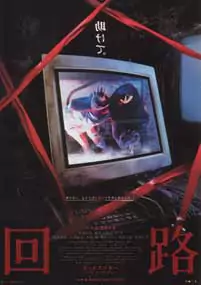 Perhaps no other country has produced as many horror movies as the United States—and no other country can call itself the motherland of the most iconic horror characters: Jason Voorhees, Freddy Krueger, Alien, Leatherface, Michael Myers—the names many of us know from childhood. At the same time, this long tradition has caused a stagnation; American horror movies are predictable to such an extent that often after watching the first 20 minutes of a movie, it is possible to say who will survive, and how the plot is going to unfold. Besides, American horrors mostly focus on monsters and serial killers, with all the accompanying attributions: gore, murder, violence. All this can be exhausting: if you have seen one American horror, you have seen them all (well, there are exceptions, of course, such as “Alien,” “The Thing,” “Paranormal activity,” and some others).
Perhaps no other country has produced as many horror movies as the United States—and no other country can call itself the motherland of the most iconic horror characters: Jason Voorhees, Freddy Krueger, Alien, Leatherface, Michael Myers—the names many of us know from childhood. At the same time, this long tradition has caused a stagnation; American horror movies are predictable to such an extent that often after watching the first 20 minutes of a movie, it is possible to say who will survive, and how the plot is going to unfold. Besides, American horrors mostly focus on monsters and serial killers, with all the accompanying attributions: gore, murder, violence. All this can be exhausting: if you have seen one American horror, you have seen them all (well, there are exceptions, of course, such as “Alien,” “The Thing,” “Paranormal activity,” and some others).

✅ AI Essay Writer ✅ AI Detector ✅ Plagchecker ✅ Paraphraser
✅ Summarizer ✅ Citation Generator
In my opinion, Asian horror movies—Japanese, in particular—are much scarier and diverse both in terms of plot and atmosphere than American ones. Unlike Hollywood, the Japanese horror tradition focuses mostly on ghosts and curses rather than monsters and maniacs. The visual means Japanese directors use are different as well: instead of trivial shacks in the woods, abandoned factories, or distant isolated places, Japanese directors often develop the plot right in the middle of a big city, in urban areas, apartments, schools—in other words, in mundane habitual environments. This automatically makes horror closer to the audience; one thing is when something bad occurs in distant forests where you are unlikely to set foot the next several years, and another thing is when you cannot feel safe even at home, living in a comfy downtown area. In addition, Japanese horrors skillfully exploit urban decorations to manipulate with the audience’s feelings: grey, dismal concrete, grim, dull skyscrapers, narrow streets and back alleys—all this helps create a specific atmosphere of isolation and hopelessness.
One of the best modern horror directors in Japan is, in my opinion, Kiyoshi Kurosawa—the creator of an extremely disturbing masterpiece “The Cure.” This review, however, is dedicated to one of his other movies: “Kairo,” or “Pulse” (although a more correct and logical translation from Japanese would be “chain, circuit”). This is also a famous movie, and in 2006, there was an American remake, although compared to the original, it is less frightening and full of jump-scares.
“Kairo,” as well as many other Japanese horror movies, may seem fragmented; there are many secondary characters who appear on screen just to vanish in a couple of minutes and never appear again. Their main function is to “pave the way” for the main characters, to show what the threat is, and what the main characters will have to face.
The movie starts with a scene when a young programmer, Taguchi, invites his friend Michi to his place to give her a disc with a program he created; while the girl is at his place, he hangs himself. Later, Michi reviews the disc and discovers a disturbing video sequence featuring a man slightly resembling Taguchi. At the same time, a student named Ryosuke runs into a website with a strange message: “Do you want to meet with the ghosts?” After the message, Ryosuke sees unpleasant images of lonely people, each closed in their tiny slab of space. Ryosuke asks his friend Harue, who is also a programmer, to help him figure out what is wrong with the website. She then gets him acquainted with a strange student, an author of a computer program illustrating loneliness; he claims that the world of the dead is overfilled, and that the spirits of the passed away people now have to stay in the world of the living.
Yabe, Taguchi’s friend (and one of the secondary characters I mentioned), is visited by a ghost; after this, he becomes a different person: an alienated ruin of his former self. Michi’s chef apparently faces a ghost as well, because he tries to isolate himself from the rest of the world in his apartment. When Michi and her friend Junko come to his apartment, they see a specter; after this, Junko vanishes from Michi’s eyes, leaving just a dark shade on the wall. A person who sees a ghost somehow gets “contaminated,” and dies soon after. Ryosuke finds Harue in a completely depressed state; she draws his attention to the fact that the city has become strangely desolated, and leaves; as a confirmation of this, Ryosuke sees a long list of missing people shown on TV. Seeking her, Rousuke meets Michi, wandering around the city stressed out because of Junko’s death; together they find Harue at an abandoned factory—she shoots herself in the head right in front of them. Understanding that there is something very wrong going on, Ryosuke and Michi try to escape the city in a car, but they run out of gas; looking for fuel, Ryosuke gets trapped in a room with a ghost; the latter tells him: “Death is an eternal loneliness.” It can be assumed that the strange images of people locked in their rooms were in fact the depictions of ghosts locked in their afterlife. Somehow Ryosuke manages to get out of the room, although the effect of meeting with the dead already manifests itself. Michi helps Ryosuke get to the port, where they board a ship and sail out of Tokyo; when departing, they see a huge airplane crash right in the middle of the city. Apparently, a strange plague spreads quickly. On the ship, Ryosuke disappears as well, in the same way as Junko, and the movie ends.
Well, this summary may look somewhat messy and illogical, but it is a common thing when writing about Japanese horrors and I do not think much can be done about it. Anyways, what I loved about “Kairo” was the sensation of total isolation that it is soaked with. The main idea of the movie is not to scare you, but to persuade you that death is not to be afraid of—but loneliness is. Ghosts in “Kairo” are metaphors for modern society, in which people, despite developing a means of communication, computers, and living in big cities, are still lonely and detached; their hopelessness and depression is fueled by all kinds of social networks and programs, which, instead of unification, brings only isolation. Every ghost in the movie is a person whose loneliness has reached absolution. Locked in their rooms, they try to reach out to the “living”—but the living get “infected”; this is why the movie is called “Circuit” or “Chain.”
Along with a strong philosophic background, the movie possesses a unique atmosphere able to affect anyone who watches it. People on screen appear and vanish—just like in real life, with strangers we see on streets every day, or random acquaintances whom we add on Facebook only to forget about their existence within the next couple of days. Loneliness in a big city is, perhaps, the most crushing feeling, and Kurosawa masterfully conveys it through several great scenes: an empty, noisy pachinko salon with a single ghost in it (usually pachinkos are amazingly overcrowded); empty streets of one of the biggest cities in the world; gloomy, narrow, and recently abandoned apartments—you can literally feel that someone was living there a couple of seconds before it was shown to you….
“Kairo” is not great neither in terms of actors play, nor in terms of visual effects. Simplistic and sometimes obviously cheap (like the falling airplane in the end), the effects are anything but outstanding; as for the actors, they look more like triggers, causing certain events to occur, rather than live people; sometimes the actors look as detached from their job as their characters are detached from the world around them. The main visual value of “Kairo,” however, is in the composition, in the way the director presents details, and in simple but powerful images and messages he inserts every now and then. Scary, alien, and depressing—and at the same time deep and meaningful: this is how I would characterize the movie in general.
“Kairo” is one of my favorite Japanese movies. If you decide to watch it, try to abstract from the fact that it is supposed to be a horror movie, and perceive it as an expression, an utterance about one of the biggest problems of modern society: loneliness. In this context, I believe “Kairo” will be able to impress you in the same way it impressed me.
Follow us on Reddit for more insights and updates.




Comments (0)
Welcome to A*Help comments!
We’re all about debate and discussion at A*Help.
We value the diverse opinions of users, so you may find points of view that you don’t agree with. And that’s cool. However, there are certain things we’re not OK with: attempts to manipulate our data in any way, for example, or the posting of discriminative, offensive, hateful, or disparaging material.